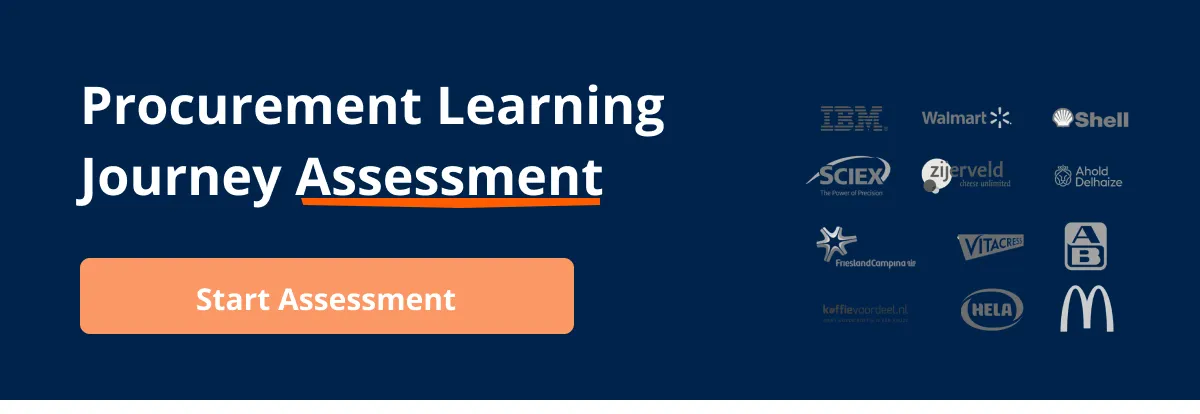ChatGPT & AI in
Procurement Course
Free Preview Lesson

Written by Marijn Overvest | Reviewed by Sjoerd Goedhart | Fact Checked by Ruud Emonds | Our editorial policy
Contract Lifecycle Management Software — The Ultimate Guide of 2024
- A contract lifecycle is the process of how contracts are made and managed.
- Around 60-80% of organizations are governed by their contracts
- Contract lifecycle management software can speed up processes and lessen inaccuracies.
Integrating contract lifecycle management software is one of the best ways to manage contracts in a company. However, what is it?
In this article, we will discuss what contract lifecycle management software is. We will also discuss why you need it and show you the best software available nowadays to streamline your contracts.
After reading this article, you will have a great understanding of contract lifecycle management software. You will also know some of the best software that you can integrate into your process. As a result, you will be able to know what software best suits your operations.
Whatis a Contract Lifecycle?
Contract lifecycle is the process of how contracts are created and managed. It details the stages of the process of contracts from drafting to post-signature tracking.
Although some companies have their own stages of contracts, they still follow the same way in which the contracts will be created, reviewed, negotiated, signed, tracked, and renewed.
However, contracts are complex documents and moving back and forth across their lifecycle is typical. For example, when a contract is being discussed, it is more likely to go back to the reviewing stage by the other party. Then, once the changes are accepted, the flow of the process will now continue.
This is where contract lifecycle management comes into mind. It automates and streamlines the contract processes at each stage. By creating a unified and efficient process, companies and suppliers can save time and reduce errors when discussing contracts.
What is a Contract LifecycleManagement Software?
Almost 60 to 80% of companies are governed by their contracts. This, why it is a significant part of the organization and probably not the most fun part of it.
According to an investment banking company, Goldman Sachs, automating contract management speeds up sales negotiation cycles by up to 50%. Additionally, it removes inaccurate payments by 75 to 90% and decreases the operating and processing costs related to contact management by up to 30%. Therefore, a good reason to integrate contract lifecycle management software in your company.
Contract lifecycle management software is used to smoothen the contract process and helps other teams in creating their own contracts with templates.
Most of this software is designed to provide visibility into corporate spending, create ways in making the contract process efficient, and lower administrative costs. Thus, it drives immediate and long-term value for the company.
The NeedFor a Contract Lifecycle Management
As businesses continue to grow, the increasing contract volumes will be difficult to manage, especially by using Word, Excel, and shared Drives only.
When this happens, legal teams of businesses will be having a hard time managing all the contracts. As these problems arise, they may ask themselves these questions:
- What is in my contracts?
- Where can I find the recent version of these contracts?
- Who owns this contract?
This is the time when businesses consider implementing contract lifecycle management software. This, why many growing businesses are starting to look for contract lifecycle management software that suits them well.
7 Best Contract LifecycleManagement Software Tools
1. Juro
If you do not have a budget yet for contract management software, then Juro is best for you. Juro offers a free plan with great functionality. The free plan is up to 50 contracts a year.
Additionally, it has a user-friendly interface and native e-signature that will greatly help your business. As an end-to-end contract management platform, it offers templates and a template editor to create contracts. This will allow you to send the approval quickly and easily.
2. DocuSign
DocuSign is software that best fits small businesses. It gives small businesses access to affordable contract management solutions.
DocuSign has a mobile app for android and IOS that allows its users to monitor their contracts wherever they go. It has a 30-day free trial of the e-signature solution and 24/7 chat support to resolve any problems when using the software.
3. PandaDoc
PandaDoc has a robust contract and document management platform that makes it shine among other software. It provides custom templates that you can easily use. Additionally, you can set up custom workflows, rules, and processes.
It has 24/7 customer support on paid plans which allows it to resolve any problems immediately. PandaDoc also includes unlimited documents and e-signatures.
4. SAP Ariba
With SAP Ariba, you can create core templates and unified terms for consistent conditions that may help buyers and suppliers save time and reduce human errors.
It assists its customers in managing sales and procurement contracts, IP licenses, and internal agreements. As SAP Ariba specializes in contract creation, it can help you quickly make contracts with pre-approved templates and clauses.
5. Conga Contracts
Conga contract software is loved by many customers. Customer satisfaction is visible as it has a high retention rate and almost all of its customers renew it.
Conga contracts deliver an end-to-end contract lifecycle management solution built within the Salesforce platform. Its features include contract lifecycle automation and management, process automation, workflows, contract executions, and AI powered-data extraction to track risks.
6. Evisort
Evisort offers rapid ROI in 30 days by centralizing contracts with no migration. Additionally, it uses AI to track and find metadata and provisions without manual data entry. Thus, it allows teams to draft, approve, sign, and renew contracts.
Evisort also has intelligent dashboarding that can instantly visualize contract data from scanned word files or PDFs. It summarizes key metrics without the need for manual entry.
7. Agiloft
Agiloft is a contract lifecycle management software provider for commerce. What sets them apart from other software is its military-grade security that protects the contract documents by preventing unauthorized internal access and external data breaches.
Agiloft built its platform on security-first measures. It includes automated back-ups, strong malware and antivirus protection, and safeguards against external and internal users.
In Conclusion
Integrating contract lifecycle management software streamlines processes and ensures efficient contract management. Understanding the contract lifecycle—from creation to post-signature tracking—is essential. Contract lifecycle management software automates and unifies contract processes, saving time, reducing errors, and benefiting both companies and suppliers. As businesses face growing contract volumes, the need for dedicated software becomes apparent. The article lists seven top contract lifecycle management tools, highlighting their features and benefits for various business needs.
Frequentlyasked questions
What is a contract lifecycle?
It is the process of how contracts are created and managed.
What is contract lifecycle management software?
It is a software used to smoothen the contract process and helps other teams in creating their own contracts with templates.
Why do you need software to manage your contract lifecycle?
As business continues to grow, it will be harder for companies to manage their contracts. Thus, the need for a contract lifecycle management software.
About the author
My name is Marijn Overvest, I’m the founder of Procurement Tactics. I have a deep passion for procurement, and I’ve upskilled over 200 procurement teams from all over the world. When I’m not working, I love running and cycling.


